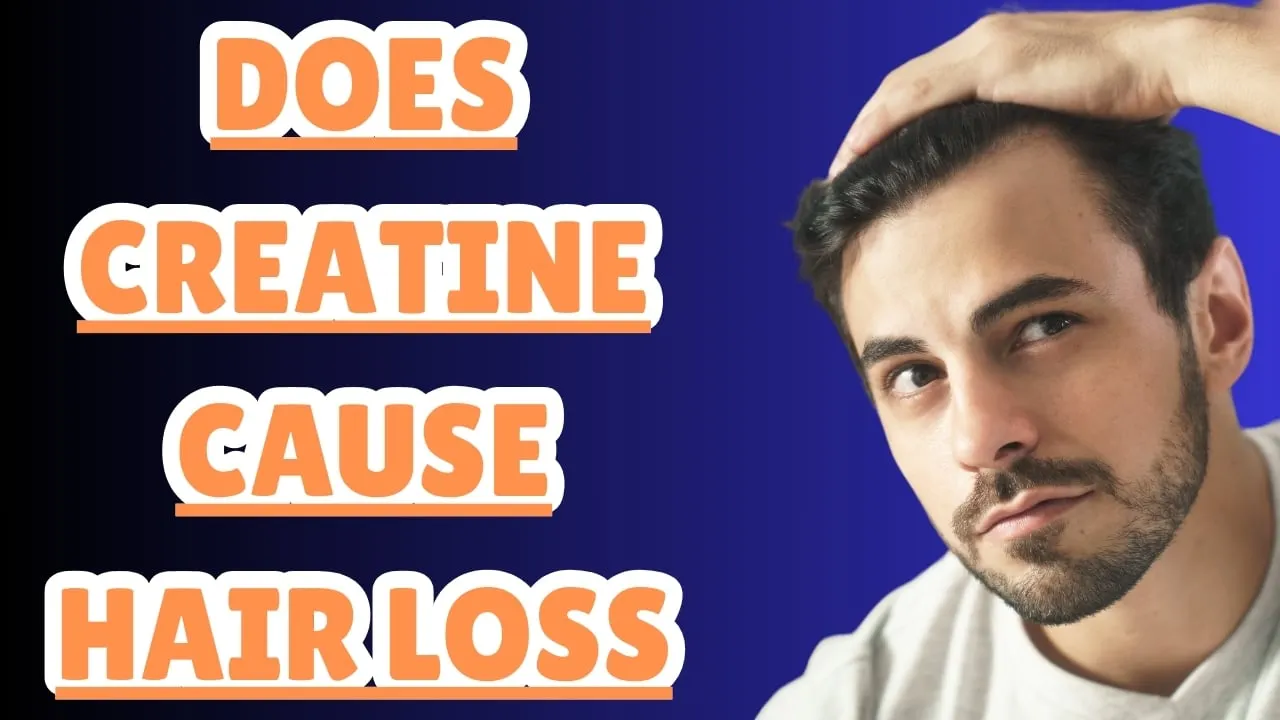Does Creatine Cause Hair Loss? Understanding the Truth Behind Creatine Hair Loss
Does Creatine Cause Hair Loss? The Truth About Creatine and Hair Loss
Creatine is a popular supplement known for its ability to enhance muscle mass, improve strength, and boost athletic performance. But alongside its benefits, there has been speculation about its potential side effects—one of the most debated being hair loss.
This article dives into the science behind creatine supplementation and its alleged connection to hair loss, addressing whether creatine supplementation can lead to hair loss and what you should know before using it.

Why Read This Article?
If you’re concerned about the possibility of creatine causing hair loss or want to better understand its effects on your body, this article provides evidence-based insights.
By the end, you’ll have a clear understanding of whether creatine supplementation poses any risks to your hair health and how to use creatine responsibly.
Article Outline
1. What Is Creatine and How Does It Work?
2. Does Creatine Cause Hair Loss? Examining the Claims
3. The Science Behind Creatine and DHT Levels
4. Effects of Creatine Supplementation on Hair Follicles
5. Is Hair Loss Due to Creatine Permanent?
6. Who Is at Risk of Hair Loss While Using Creatine?
7. Preventing Hair Loss While Taking Creatine
8. The Role of Doses of Creatine in Potential Side Effects
9. Benefits of Creatine Supplementation in Exercise and Beyond
10. Should You Use Creatine? Balancing Risks and Rewards
1. What Is Creatine and How Does It Work?
Creatine is a compound naturally produced in the body, primarily in the liver, kidneys, and pancreas. It’s also found in foods like red meat and fish.
Creatine plays a crucial role in energy production by replenishing ATP (adenosine triphosphate), the primary energy source for muscle contractions during intense exercise.
When you supplement with creatine, it increases your body’s creatine levels, allowing for better energy output during workouts. This boost often leads to enhanced muscle mass, improved strength, and quicker recovery.

2. Does Creatine Cause Hair Loss? Examining the Claims
The question, “Does creatine cause hair loss?” has been a hot topic for years.
The claim originates from a 2009 study on rugby players that found a significant increase in DHT levels after creatine supplementation. Since DHT is linked to male pattern baldness, many assumed creatine could contribute to hair loss.
However, there is limited evidence to suggest that creatine directly causes hair loss. Most studies on the safety and efficacy of creatine supplementation have not reported hair loss as a common side effect.

3. The Science Behind Creatine and DHT Levels
DHT (dihydrotestosterone) is a hormone derived from testosterone and is known to contribute to hair loss by shrinking hair follicles.
The 2009 study demonstrated that creatine supplementation may lead to an increase in DHT levels, but this doesn’t necessarily mean creatine causes hair loss.
It’s essential to note that elevated DHT levels can affect individuals differently. While some people are more sensitive to DHT due to genetics, others may not experience any adverse effects on their hair.
4. Effects of Creatine Supplementation on Hair Follicles
Hair follicles are delicate structures affected by various factors, including hormones like DHT.
There’s no conclusive evidence that creatine supplementation directly harms hair follicles. The potential link between creatine and hair loss stems from its possible role in raising DHT levels, which might affect those predisposed to male pattern baldness.
While creatine increases muscle mass and energy, the idea that it causes hair follicles to shrink remains speculative at best.
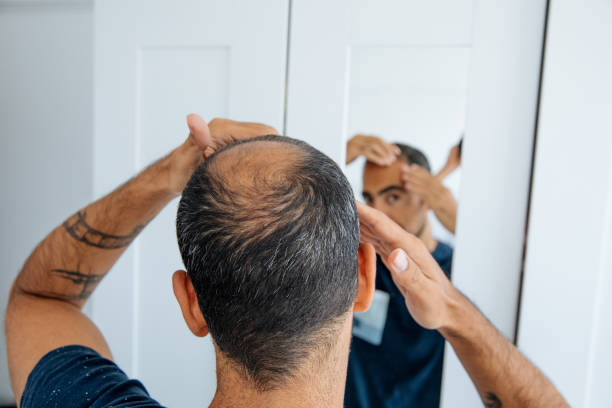
5. Is Hair Loss Due to Creatine Permanent?
Hair loss due to creatine supplementation, if it occurs, is likely tied to temporary increases in DHT levels. For most people, stopping creatine use or managing DHT levels through other means should help restore normal hair growth.
It’s crucial to diagnose the cause of your hair loss accurately before attributing it to creatine supplementation. Consulting a healthcare professional is recommended.
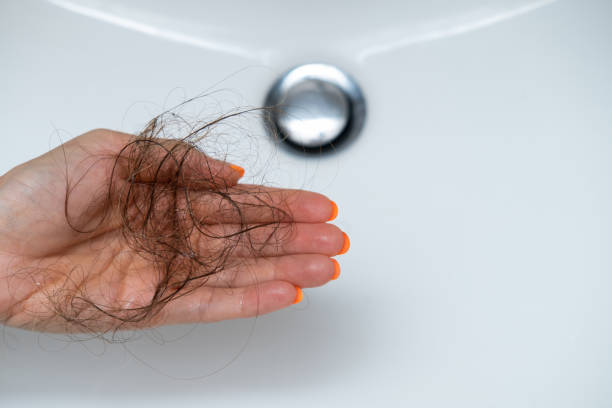
6. Who Is at Risk of Hair Loss While Using Creatine?
Not everyone who uses creatine experiences hair loss. The risk is higher for individuals with a genetic predisposition to male pattern baldness or sensitivity to DHT.
If you’ve noticed hair thinning or hair loss in your family, you may want to monitor your hair health closely when starting creatine supplementation.
7. Preventing Hair Loss While Taking Creatine
To minimize the risk of hair loss while using creatine:
- Monitor your dosage: Stick to recommended doses of creatine and avoid overloading.
- Maintain a healthy diet: Nutrients like biotin and zinc can promote hair growth and protect hair follicles.
- Use hair loss treatments: Options like minoxidil or finasteride can counteract the effects of DHT on hair follicles.

8. The Role of Doses of Creatine in Potential Side Effects
Taking high doses of creatine may lead to temporary increases in DHT levels, but this doesn’t mean creatine directly causes hair loss.
Following the recommended doses of creatine ensures safety and minimizes the risk of side effects.
The International Society of Sports Nutrition suggests that creatine supplementation in healthy individuals is both safe and effective when taken as directed.
9. Benefits of Creatine Supplementation in Exercise and Beyond
Despite the concerns about hair loss, creatine supplementation offers significant benefits:
- Increased muscle mass: Creatine enhances strength and promotes muscle growth.
- Improved performance: It boosts energy during high-intensity workouts.
- Cognitive benefits: Emerging research suggests that creatine may support brain health.
The role of creatine in exercise performance and recovery is well-documented, making it one of the most researched supplements available.
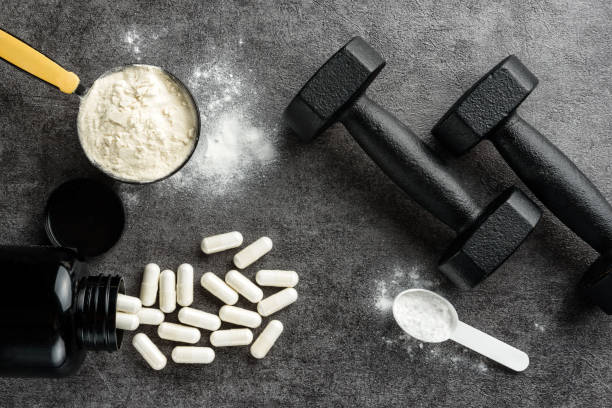
10. Should You Use Creatine? Balancing Risks and Rewards
If you’re worried about hair loss, weigh the benefits of creatine supplementation against the potential risks.
While creatine can increase muscle mass and improve athletic performance, it’s essential to consider factors like genetic predisposition to hair loss.
Discuss your concerns with a healthcare professional to make an informed decision about using creatine supplements.
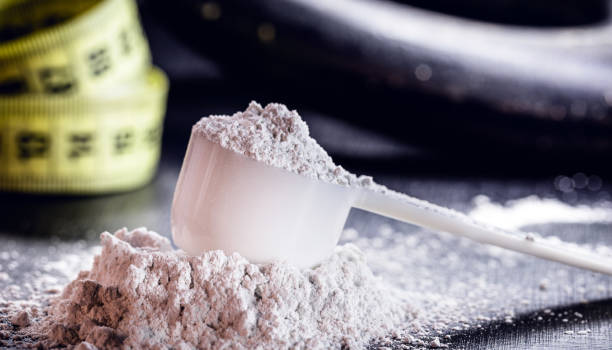
Key Takeaways
- Creatine and hair loss: There is limited evidence that creatine causes hair loss. The link stems from its potential to raise DHT levels, which may affect sensitive individuals.
- Monitor DHT levels: Genetic predisposition plays a significant role in hair loss, and not everyone will experience it.
- Stick to recommended doses: Following guidelines for creatine use minimizes the risk of side effects.
- Consult a professional: If you experience hair thinning, seek advice to diagnose the cause and explore treatment options.
- Creatine benefits: Despite concerns, creatine remains a safe and effective supplement for enhancing muscle mass and performance.
By understanding the potential effects of creatine supplementation, you can make informed choices about its use and how to manage your hair health effectively.
For More Training Advice + Diet and Lifestyle visit us Combat Creatine
PS: Make sure you check out the rest of our Creatine Guides:
Creatine
Creatine Supplements Ultimate Guide
Creatine Supplementation Side Effects
Best Creatine Monohydrate Gummies Review: Top 10 Best Creatine Gummies

